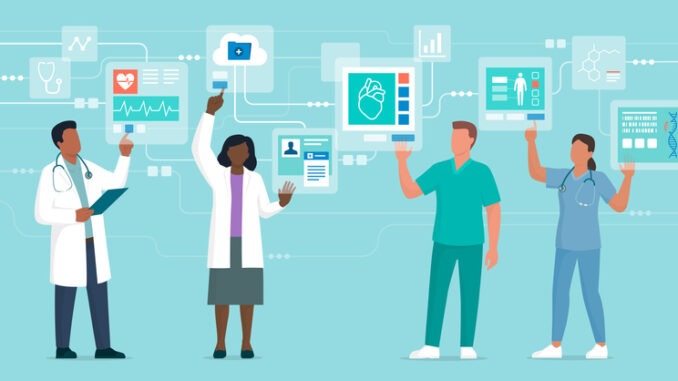
Data is being used in healthcare to better understand the causes of ill health and develop the prevention and treatment of diseases across the UK. How can GPs use data to support their practices?
Data is a great tool to improve understanding of the causes of ill health and develop prevention and treatment across the UK. The NHS has developed the General Practice Data for Planning and Research programme, which brings 300 sets of data in one single set; this enables GPs to access data quickly and efficiently without having to spend time looking through old data to find the information they need.
At the end of May 2022 6.6m patients were waiting for treatment so, as the NHS expects higher patient demands this winter, GPs can use data to improve diagnosis and treatment times for patients and optimise patient care. Numbers of face-to-face appointments are increasing again in the UK, and are at the highest they have been since the start of the pandemic. As GPs face a rising demand from patients, data can be a helpful tool to manage growing workloads.
So, how can data help GPs?
Diagnosis
Data is used millions of times each day to diagnose and treat patients. Large datasets from past patients allow GPs to identify common symptoms for illnesses and diseases and give patients a quicker diagnosis. Being able to use past data is critical for GPs to prevent illnesses as well as treat them; common symptoms can be picked up on more quickly in appointments and regular check-ins and treatment can be given sooner.
Treatment
Patient information – age, gender and medical history – is crucial to identifying the best course of treatment for patients. GPs can look to patient data to advise them in this area by using previous medical cases with conditions similar to their existing patients to determine the best course of action, and flag any potential problems that may occur.
Services
Data benefits practices as well as patients – for example, analysis of patterns in appointment data will recognise and flag up busy periods of the year. Practice managers can use this information to manage these periods – and the higher demand from patients that comes with it – to allocate staff more effectively in preparation for a larger volume of appointments.
GPs can also use data to minimise their workloads. Being able to access electronic medical records quickly and remotely saves the time that would have been spent accessing patient records manually.
Research
Data can be used for research as well as practice. Clinical trials and research benefit immensely from GP data as they try to develop cures for serious illnesses and evaluate new medical treatments. The need for regularly updated data is even more important after the COVID-19 pandemic which, the NHS says, exposed large gaps in social care data and inconsistencies in the information on workforce absences, PPE levels and the number of people receiving care from the NHS.
As winter approaches, and the pressures on the NHS are set to rise, GPs can use data in their practices to manage patient diagnosis and treatment whilst supporting their staff workloads.


Be the first to comment